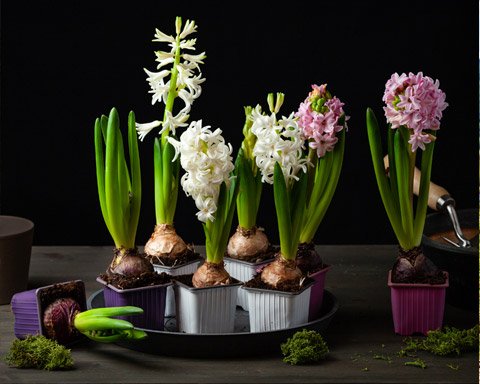People are thankfully living much longer due to advancements in medical care. Unfortunately, that also means that at some point, as we age, we will inevitably lose some of those closest to us. Experiencing grief is not limited to the death of a loved one; it can also be caused by a loved one's diagnosis of dementia, as they may no longer be the same person they once were. The feeling of losing their friends and relatives may make them feel anxious and lonely.
In this article, we look at what grief is, how the elderly can experience a worse kind of grief, its mental and physical effects, and how you can provide your loved one with the right support to help them through a difficult journey.
Jump to:
- What is grief?
- Why elderly grief is different
- Physical symptoms of elderly grief
- Feelings associated with grief
- How you can provide support for elderly grief?
- Staying connected
What is grief?
Every person might experience grief differently, and there is no right or wrong when it comes to feelings associated with grief. Past experiences, the relationship with the person who has passed away and the cause of death are just some of the things that can affect how your elderly loved one might grieve and what they might feel.
They might experience complicated and confusing emotions. Often, during grief, it's difficult for older adults to express their feelings. During this challenging time, it is important to understand that these ever-changing emotions are entirely normal, and there are plenty of ways in which you can support your elderly loved one in coping with their loss.
Why elderly grief is different
While going through grief is an inevitable reality for everyone, older adults go through worse effects due to loss.
Physical health: Dealing with bereavement leads to a higher risk of developing severe health problems due to increased stress levels, existing health conditions, and ageing.
Changes in appetite: Decreased appetite can already be a concern for older adults, but grief can further cause older adults to skip meals or not eat for days.
Confusion and ability to think: The loss of a loved one can lead to confusing feelings in everyone, but for the elderly, the emotions can be really intense, leading to forgetfulness, disorganisation, and disorientation.
Drastic life changes: Losing a loved one can cause drastic life changes. For older people, it can mean losing a carer or support system, requiring them to move into a care home away from their own home. Additionally, it can lead to increased financial stress, which can worsen the grieving process.
Isolation and loneliness: Loneliness is a significant concern for the elderly. As older adults age, they may lose loved ones, resulting in a loss of social connections. The absence of someone to talk to can make dealing with grief much more difficult in old age. Our guide to combatting the effects of loneliness explains more.
Physical symptoms of elderly grief
You may see your loved one struggling with the following physical symptoms of grief:
- Insomnia: your elderly loved one may struggle to get to get to sleep or keep waking up during the night
- Vivid dreams: can be caused when they are feeling anxious or stressed
- Loss of appetite: ageing brings changes in appetite but with added grief, food can no longer seem important and your elderly loved one may find it a chore to prepare or cook food
- Anxiety: may result in your elderly loved one being short of breath or feeling restless
- Lethargy: they may feel constantly tired and have little energy
- Confusion: common in older age, this may become more intense and your loved one may be more forgetful or disorientated; this can also be made worse by added financial pressure

Feelings associated with grief
It’s important to let your loved one know that whatever they are feeling, it is entirely normal. These feelings may include:
- Fear: they may feel scared and vulnerable following their loss
- Overwhelming emptiness and sadness: whilst these are normal emotions, if your elderly loved one shows signs of depression, seek help from a GP
- Anger: this can cover a range of different types; your loved one may feel injustice at the person having been taken away from them, regret, or even anger towards the person who has ‘left’ them
- Guilt: they may feel guilt over what they did or didn’t say/do
- Loneliness: this is common among older people and may be intensified if someone close to your loved one dies
- Quiet suffering: the older generation are often more independent and used to dealing with issues on their own, not wanting to trouble anyone with their thoughts and feelings
How you can provide support for elderly grief?
It can sometimes feel like there is nothing you can do to help your elderly loved one cope with what they are going through. There are, however, a number of things you can do to help and show you are there for them.
Sleep and rest
Losing someone close to you not only means that you have a multitude of practical issues to sort out, but with the added emotional grief, everything can be exhausting.
Encourage your elderly loved one to rest when they can, when it best suits them, and to try not to get overly anxious about not being able to sleep.
Food and drink
Make sure that your elderly loved one eats and drinks regularly to keep them healthy and raise their energy levels. It’s important for them to eat what they fancy and not feel they have to adhere to a strict meal plan – it’s better to eat something than nothing at all.
If they seem to become more reliant on alcohol to manage their grief, seek help from a GP or a specialist organisations such as Drinkaware.
Self-care
If your loved one is starting to neglect their personal hygiene, not take their medications or miss health appointments, try to support them by encouraging and helping in any way that you can.
To help ease the burden, you could do their food shopping, prepare some meals, manage their paperwork or accompany them to doctors’ appointments. Make sure you provide ongoing help for the long term, so that your elderly loved one feels supported and reassured whilst they process their loss.
If they could do with some regular help in the home, talk to the local council about having a care needs assessment. Age UK offer some useful information about this.
If your elderly loved one remains unmotivated or shows signs of depression, make sure that you consult a GP and ask for professional help.

Staying connected
Often, someone who is grieving will withdraw from social situations and avoid communicating with their friends and family. Social isolation can drastically increase the risk of premature death, so it is important to encourage your elderly loved one to stay connected to those around them and openly talk about their feelings and the person they have lost. Make sure you keep them company, regularly spending time with them to eat, watch TV or chat on the phone. Check our tips for dealing with social isolation.
If someone else has also been affected by the loss, perhaps together they could share memories of their loved one and celebrate their life.
Local bereavement support groups can also be beneficial in helping your loved one to stay connected. You could talk to Age UK, a health professional, your local library or place of worship to find out about local groups.
Friendship services for elderly grief and loneliness
Age UK also offers friendship services both over the phone and face-to-face. These services provide regular conversations or a quick chat whenever your loved one may they need it. You can find out more here or contact your local Age UK.
Staying Connected guide
Our Staying Connected guide includes tips to cope with loneliness in later life. Download the Staying Connected guide for free.
Financial worries
It is common to worry about our finances at any age, but if your elderly loved one’s partner has died, it can put extra strain on the situation and cause heightened anxiety. They may be able to claim Bereavement Support Payment, which is not means tested and could help ease some financial pressures. Read more in our guide to elderly benefits and entitlements.
Peace of mind for you
When an older loved one has recently lost their partner and is now living alone, it’s natural to become more worried about how they will cope on their own.
As well as the useful resources and advice that we offer for both you and your loved one, a personal alarm from Taking Care can offer peace of mind that your elderly loved one will be able to call for emergency assistance if they need it. We also offer non-intrusive care monitoring systems that can raise an alert if your loved one suddenly changes their habits or routine at home.



